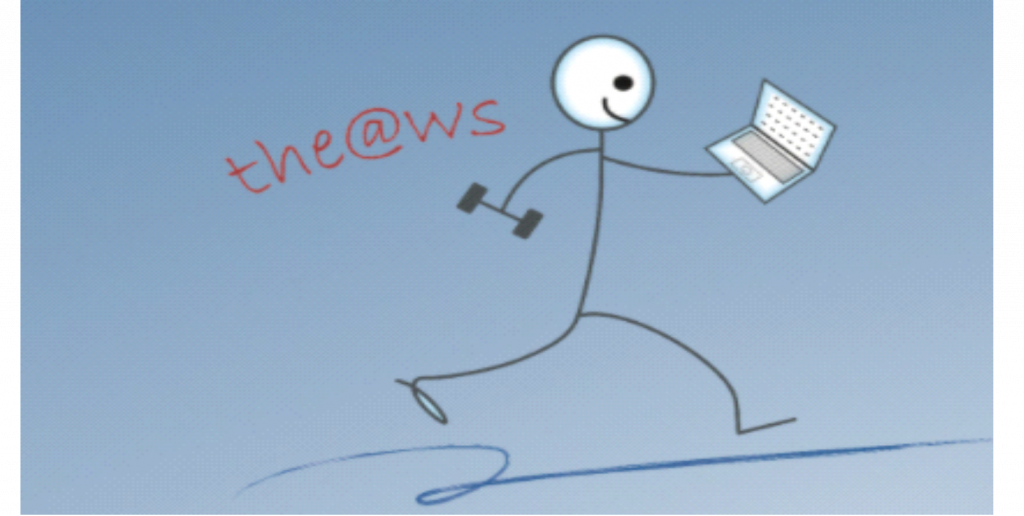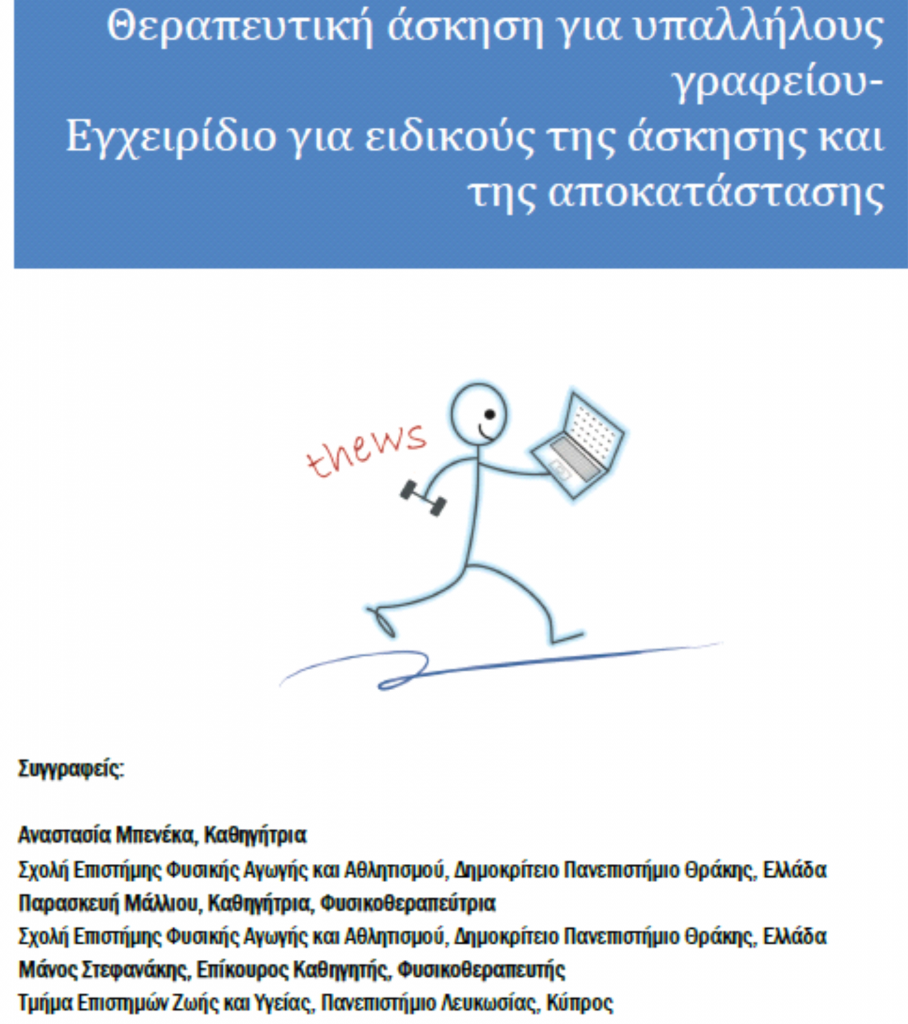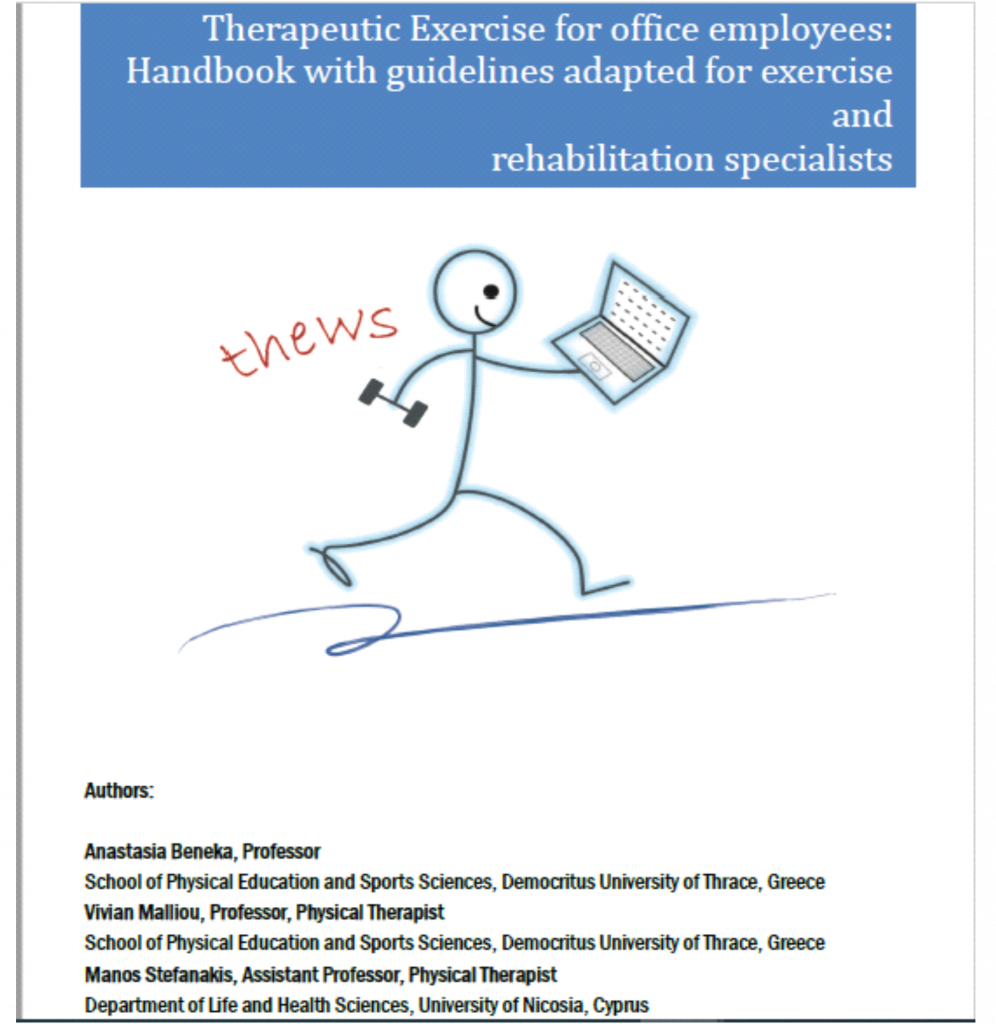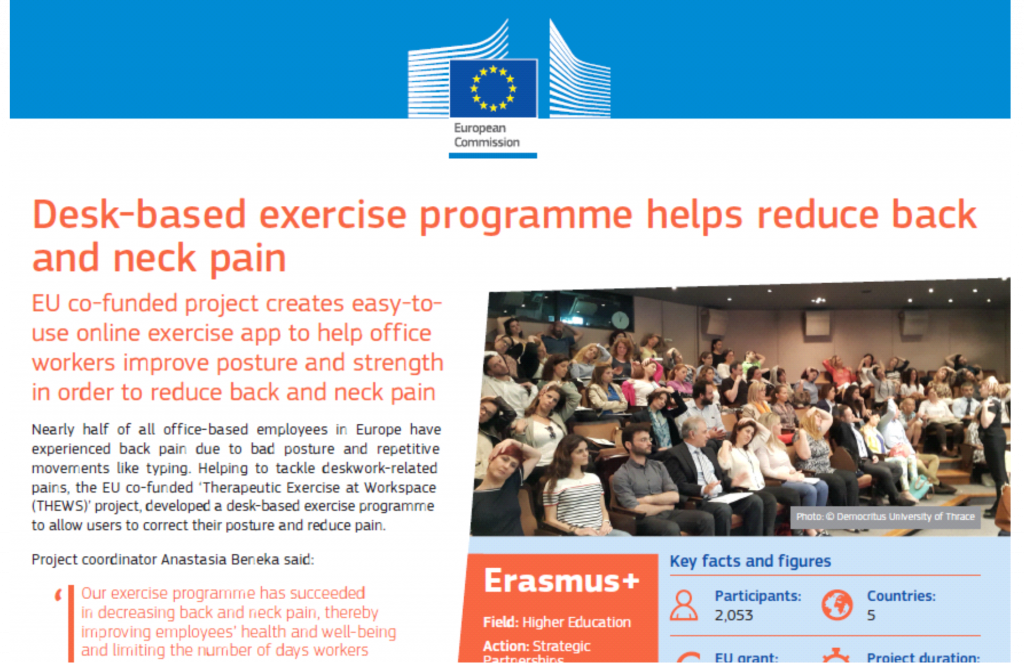

Context/background of project: Musculoskeletal disorders (MSDs) such as neck/back pain or upper limb disorders remain the most common occupational disease in the European Union and workers in all sectors and occupations can be affected. They are also an increasing problem and one of the most important causes of long-term sickness absence. Beside the effects on workers themselves, MSDs may lead to high costs to enterprises and the society as a whole and is related with high socioeconomic consequences in terms of health expenses and loss of working days. While sitting, office workers tend to lean forward or to slouch in the chair. This partial immobilization can cause low back pain or neck pain because static posture increases stress on the back, neck, shoulders, arms and legs. In particular, sitting can add large amounts of pressure to the back muscles, spinal discs and ligaments (Beneka et al, 2014). Therefore, strength and conditioning professionals, athletic trainers, and physical therapists often come across on going or recurrent complaints of neck pain. While the etiology of musculoskeletal pain symptoms is multi-factorial, there is a general consensus about the beneficial effect of therapeutic exercise.
Objectives of the project: The partnership has come together because of the common purpose and belief that health promotion and well-being in the workplace is one of the most pressing problems facing European economies. The common goal and vision amongst the partnership members is that, there needs to be a learning program (focused on transforming ‘ideas into action’ in line with Europe 2020 recommendations) for exercise and health specialists, which will act as a catalyst for their own professional development and that will enhance well-being and quality of life in the Work Space.
The potential longer term benefits: THEWS project is expected to have a long lasting impact on the wide dissemination of THEWS protocol and its integration to office employees’ everyday lives. Rising awareness of CSR and HR members on the serious social impact of musculoskeletal disorders and their socioeconomic consequences, the project expects believe there will be a decrease in absenteeism from work and a considerable reduction of health expenses for neck problems. By educating office employees in implementing THEWS protocol at work, the project aims to instil them that the healthier option is the easier option and at the same time to address one of the most frequent musculoskeletal problems related to loss of working days.
Erasmus+
“This project has been funded with support from the European Commission. This publication reflects the views only of the author, and the Commission cannot be held responsible for any use which may be made of the information contained therein.”



